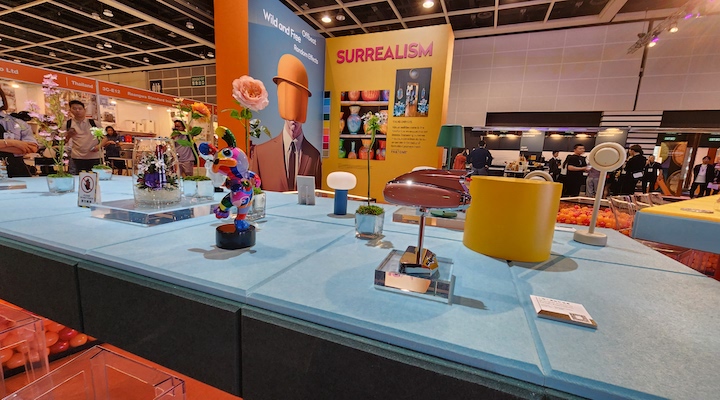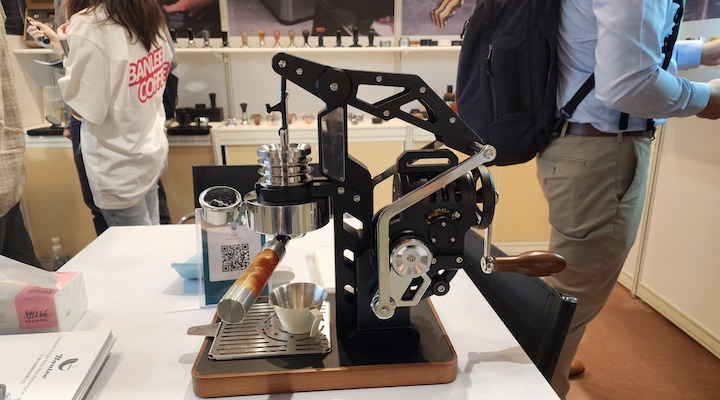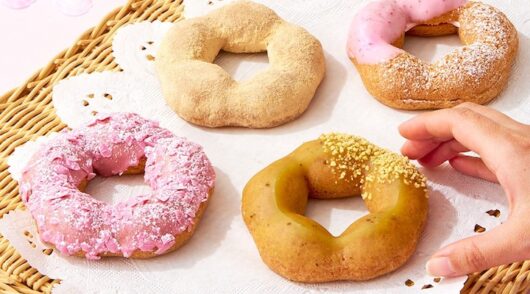As homewares buyers from around the world descended on Hong Kong over the weekend, exhibitors hoped their sharper focus on sustainability and products geared to consumers embracing the Covid-born work-from-home trend would populate the order books.
Home InStyle 2024, organised by the Hong Kong Trade Development Council (HKTDC) drew 1750 exhibitors, 70 per cent up on last year’s event, evidence that retail buyers and brands are returning to trade exhibitions. While the majority of exhibitors were from Mainland China, others hailed from North and Southeast Asia, Australia, Japan, Korea, Saudi Arabia – and even Poland.
Homewares is a typically fickle market, with trends coming and going according to global events, fashion and popular cultural influences. But as the painful memories of Covid fade, two things stood out in Hong Kong: the growing influence of sustainability on product design, range development, componentry and marketing – and the way consumers indulge in items that individualise their homes. Since the pandemic, when people had little choice where to work due to lockdowns, many consumers’ homes have become their primary workplace.
Peter Pang, founder of Hong Kong-based Pete’s Design Studio, uses laser etching or engraving to create decorative items based on historic Hong Kong posters, street signage, old coins or architecture. Pre-pandemic he was targeting small production runs of products overseas tourists could buy as souvenirs or gifts, like handmade mahjong sets.
“Covid changed our trajectory a lot. We were making some very useful, practical, functional kinds of things and when Covid hit, travel stopped immediately, and people started to spend their money elsewhere. That really changed us because now we have more freedom to be creative. Some of the things we make for Hong Kong consumers are quite useless, but they are fun.
“People are now more into interior decoration, they’re more into fancy items, and decorations, they don’t mind, if the product doesn’t really have any function, they just want to decorate their interior space.”
Pang sealed a deal with a private Hong Kong museum to turn vintage propaganda and signage into engraved signs that can be hung on walls, like a notice banning hawking, and a set of coasters that can be lined up to display an etching of the famous former Canton-Kowloon railway station clock tower in Tsim Sha Tsui.
Like other exhibitors, Pang is quick to reassure people of his business’s commitment to sustainability. It steers clients towards using soft wood which takes 10 to 20 years to grow, rather than hardwood which can take up to 100 years.
Many other exhibitors underlined the trend towards consumers rewarding themselves at home – at the same time as acknowledging the modest size of Asian apartments, especially in Hong Kong.
Jiangmen Bangle Metal Manufacturing Co of China displayed high-end Banlee Coffee gadgets for coffee enthusiasts who make their brews at home – from powder pressers, coffee milk pitchers, an array of tampers and coffee jugs through to a complex vintage-style manual coffee machine, where you wind a handle to pressure the water through freshly ground coffee which drips into the cup.
Ningbo Ucome Lighting has created a range of decorative table lamps that double as practical accessories like flower vases, fruit bowls or a wine decanter.
Swinging Sticks, a kinetic sculpture made by Hong Kong’s Gee Long Group and based on German technology achieves an illusion of perpetual motion. Two sticks balanced on a vertical triangle move constantly, thanks to metal, magnetics precision “and physical concepts derived from Chaos Theory” spokeswoman Rebecca Chen told us.
The essentiality of sustainability credentials
No matter the product category at Home InStyle – bathroom, kitchen, decor, storage solutions, cleaning, pet supplies or flooring – the vast majority of exhibitors were keen to make a point about the sustainability cred of their products. The veracity of any claims – aside from those backed up by independent certification – is always hard to quantify, but exhibition organisers went as far this year as to affix a green logo on qualifying exhibitor spaces.
One of the largest displays at the show was created by Japan’s Taiyo Group, which has created a brand of eco-friendly tableware called Rebirth. All of its products – from cereal bowls, stacking cups, mugs, and plates to dinner trays and cutlery – are made from recycled PET plastic bottles, and certified for food applications in the EU and US.
The company set up plastic bottle collection boxes at schools and collects discarded bottles from households. Children who collect and donate used bottles are rewarded with library tickets and the company runs an educational program to teach students about the dangers of ocean dumping and the sheer volume of plastic bottles being discarded day to day.
Such innovation seems popular in Japan: another exhibitor, Fukui Craft Co, supported at Home InStyle 2024 by the Japanese government’s SME Support Japan program, was showing off plates and bowls created 50 per cent from finely ground egg shells, using waste collected from food factories.
“They are harder to break than ceramics, more stable and heavier than plastic,” a company spokesperson said, at pains to point out the shells weren’t used for decoration – a technique highly popular in Vietnam – but in the actual construction of the dish.
Governments of multiple Asian countries are implementing laws to ban single-use plastics, a trend reflected by many exhibitors who showcased ranges of keep-cups, water bottles, shopping bags – and long-lasting recycled or recyclable cutlery, often packaged in sets for portability when travelling.
Hong Kong company Homelover Products makes tableware from rice husks and the stalks of tea leaves, ensuring they are free from pesticide residues and plastics.
Undoubtedly the exhibitor that travelled the furthest to attend Home InStyle 2024 was Paw, of Poland, which has developed napkins made from biodegradable paper tissue, their unusual colouring emphasising their natural origins.
Flowers that last 10 years
Approaching sustainability from another direction is the Thai company Flora Flowers. In a small factory in suburban Bangkok, this 20-year-old family-owned business freeze-dries fresh flowers like roses and orchids, creating arrangements vacuum-sealed inside glass cases that will last 10 years.
The company has steadily built a clientele across the US and Japan, however strict quarantine restrictions in markets like Australia, New Zealand and the UAE prevent the importation of fresh plants and seeds, posing a challenge to the company’s expansion there.
Fink Charoenvasnadumrong, a daughter of the founders, told Inside Retail the concept could save shopping centres, food and hospitality venues and hotels a fortune by replacing traditional fresh flower arrangements that last only a week. She is currently talking with one shopping mall group in Bangkok about a solution, noting that while Flora has a catalogue of small- to medium-sized encased flower arrangements, it can create displays of any size to order.
Flora sources some of its flowers from contracted growers, but buys many of the ingredients for arrangements from local markets, helping to support the local economy.
“We try to be concerned about environmental issues and to support the local Thai markets. Every small step that you can take, we say makes the environment a little better.”
Home Instyle 2024 finishes on Tuesday.









